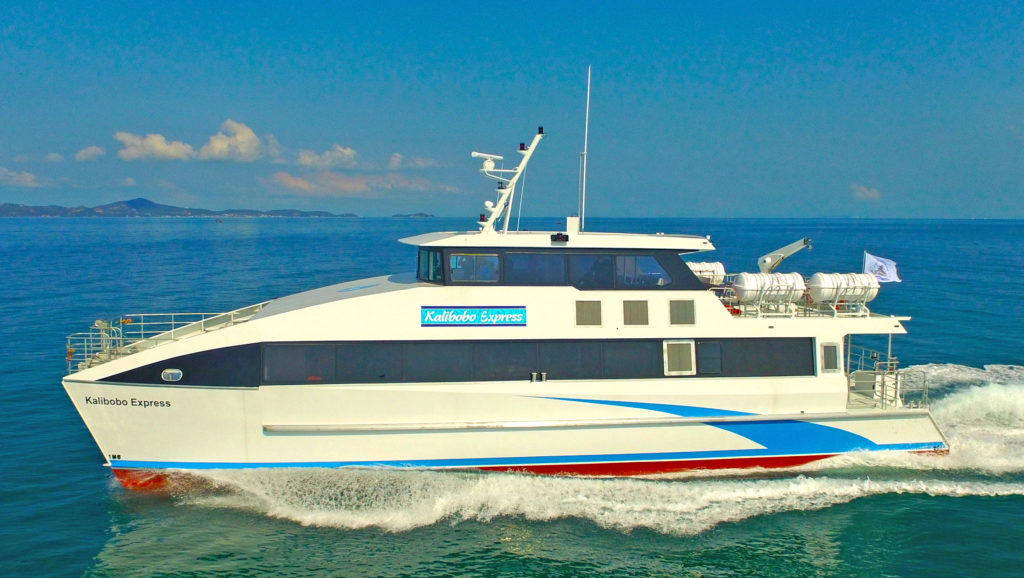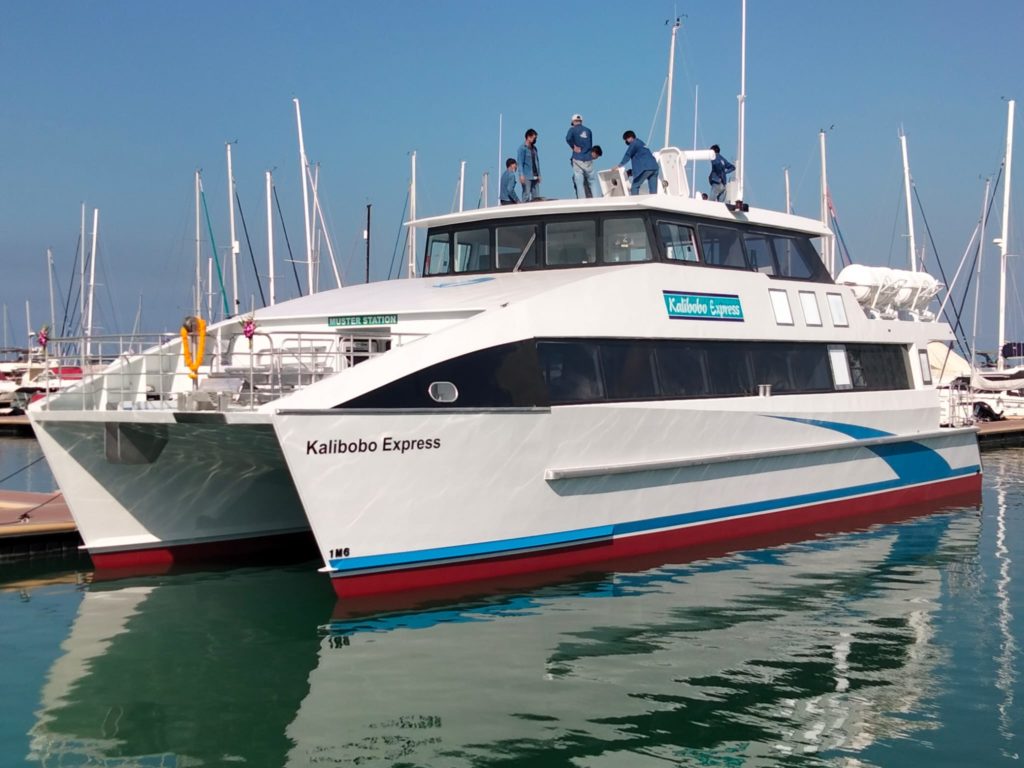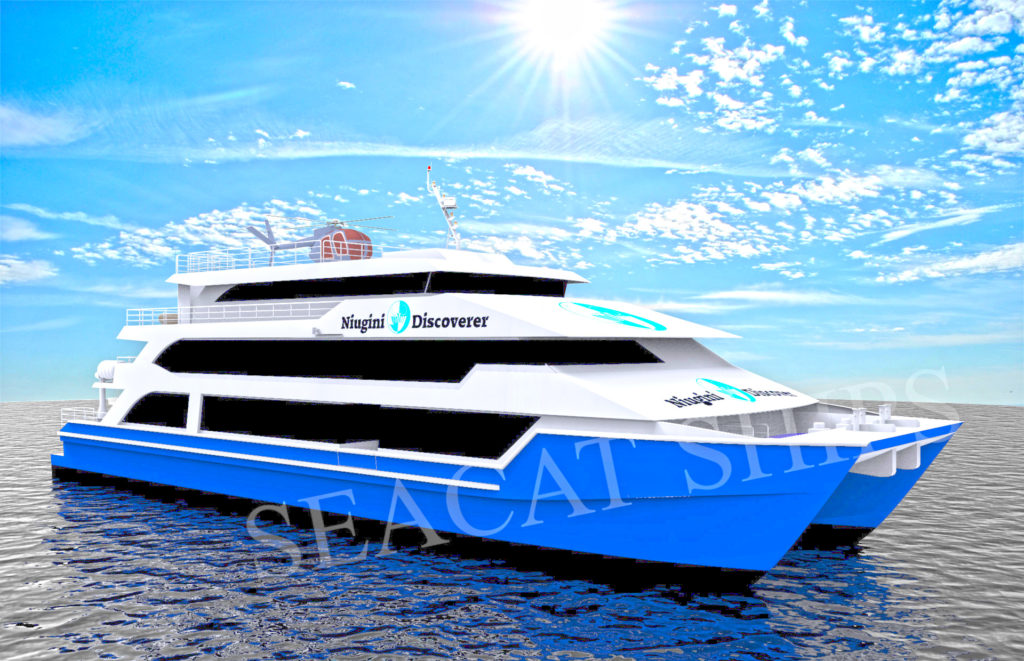By SIR PETER BARTER
The Kalibobo Express has been a long-term ambition of mine.


In the past we have operated numerous vessels starting with house boats on the Sepik River and ultimately the Melanesian Discoverer and Kalibobo Spirit – which was designed primarily for international tourists.
Apart from the Sepik, we extended expeditionary cruises through the Island of Milne Bay, Marshall Bennett Group and occasionally to islands in the Bismarck.
We gradually attracted many thousands of tourists which not only benefited our company, but bought in much needed foreign exchange to PNG, provided employment but in addition helped restore cultural activities along the Sepik and Island and bought in an economy to the people in remote regions.
Over the past decade, tourism has been adversely affected by SARS, fuel prices and the general reluctance for PNG to take tourism seriously but finally, COVID devastated the tourist industry not only in PNG but throughout the world.
Prior to COVID we had naval architects draw up plans for two vessels: one was for a fast ferry to serve the people of Kar Kar and other islands and ports along the north coast of PNG; the other was a replacement of the Melanesian Discoverer – a luxury mini expeditionary ship to carry 50-60 well-heeled tourists that would spend a lot of money in PNG.
Due to COVID, we elected to proceed with the fast ferry called the Kalibobo Express, an aluminium catamaran that would carry 120 passengers at a cruise speed of between 20-25 knots fully loaded.

This vessel is now a reality and at the time of writing, it is enroute to PNG from Sea Cat shipyard in Thailand and due to arrive in Madang on March 16, weather conditions permitting.
This vessel will operate to a schedule between Madang and Kar Kar Island with extensions to Manus as demand increases for fast, safe sea travel as opposed to expensive air travel.
Further destinations will be considered once the vessel begins service and we can gauge the popularity of this form of travel with the public.
Whilst it is primarily designed for Papua New Guineans, as tourism grows it will help tourism develop at the destinations it serves.
The second vessel which will be called the Niugini Discoverer is ready to begin construction in Thailand at the same shipyard as the Kalibobo Express.
The construction time will take 18 months by which time we hope international tourists will begin returning to Papua New Guinea.
Of course, there is a risk in such a new venture, but unless we can come up with internationally acceptable products it will be very difficult for PNG to compete with other destinations in the Pacific Region.
It is for this reason; we encourage the Government to take tourism more seriously and support our initiative along with other entrepreneurs willing to invest in tourist infrastructure.
***